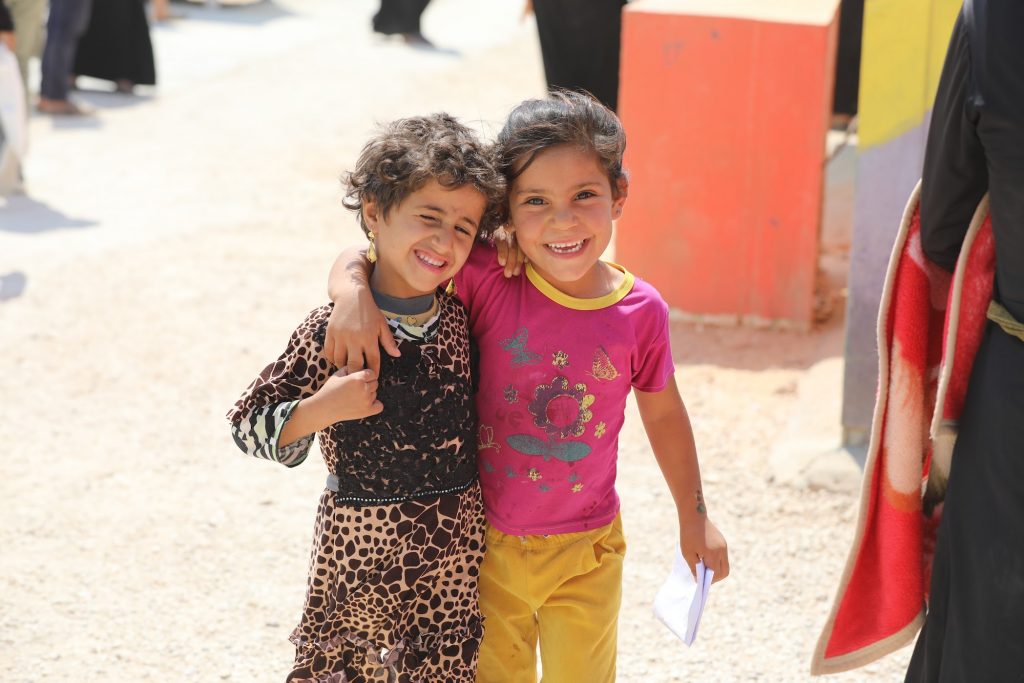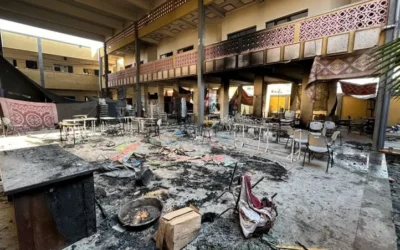Three Pillars To Enable Refugee Education For A Better Future
Long-term investment in education is a foundation to improving the chances of individuals, communities, and nations. With an estimated 35 million forcibly displaced people under the age of 18 worldwide, there is a risk that a critical mass of the global population will miss out on their right to a quality education, a decent livelihood, and a prosperous future.
The consequence of this level of displacement can have a long-lasting, negative impact on individual life chances and the ability of the global community to thrive. Without positive and collective intervention, millions of children face being on the verge of becoming a lost generation. Refugee education is supported by emergency funds rather than long-term programs, leaving the system susceptible to critical gaps and risks.
We must work together to create solutions that work collectively towards increasing the equitability of refugee education to make a tangible positive impact on today’s youth to ensure a prosperous future for all. It is part of our responsibility and in our best interest to help produce an educated and diverse workforce.
Governments, businesses, non-profit organizations, academia, and senior policymakers working together on an equal playing field will provide a platform where pioneering ideas can flourish. For the sake of an innovative education system that can adapt to the learning needs of its community and ensure a resilient and sustainable future for refugees, we need to keep the spirit of partnership alive by establishing lasting alliances across sectors.
There are three key pillars to achieving sustainable results for this kind of success.
Strategic partnerships for long-lasting impact
The complexity of challenges refugee education faces calls for long-term solutions that are resilient, effective, and equitable. These can only be achieved through strong multi-stakeholder collaborations. Strategic partnerships across various fronts are required, including financing, operations, and planning. Partnerships between the private sector and humanitarian and development actors present many opportunities by introducing new methods of delivering education in emergency settings, promoting lifelong learning opportunities, and fostering innovations while creating more inclusive societies.
Once aligned on values and priorities, accountability allows the partnerships to leverage comparative advantages to implement innovative solutions that provide quality education and skills for all, with a long-term vision.
Impact investment and job creation as a business case
Too many people have an inaccurate perception of refugees as vulnerable dependents who will burden a system. We need to replace these mental images and understand that refugees can contribute economically to the societies that welcome them as workers, innovators, entrepreneurs, consumers. These underserved communities require an investment that can act as a small fiscal stimulus that might yield dividends to host communities once refugees enter the workforce. This approach affords them the respect they deserve and pushes the financial community to create and implement innovative alternative funding solutions that will yield sustainable success.
This is where the private sector can get involved and build upon the work already being done in sustainable finance to be bold and innovative channeling investments to where they are needed. We need to make sustainable and resilient investments in our multi-crisis reality.
Technology as a key to unlock opportunities
Technology presents promising opportunities to help surpass the challenges of our current refugee education systems. Connected learning has become exemplary of how technology and teaching can combine to expand learning in a meaningful way. Improving and scaling up these connected learning initiatives should be the next pioneering move. More businesses, entrepreneurs, and education specialists should join efforts in making digital learning accessible to refugees worldwide. We need coordinated efforts to orientate the world’s digital revolution around inclusion and equity.
Stronger alliances between different partners will ensure that EdTech initiatives leverage evidence-based practices. Adopting collaborative principles informs the design of EdTech solutions. As a result, we can make a tangible impact on refugee education by working together.



